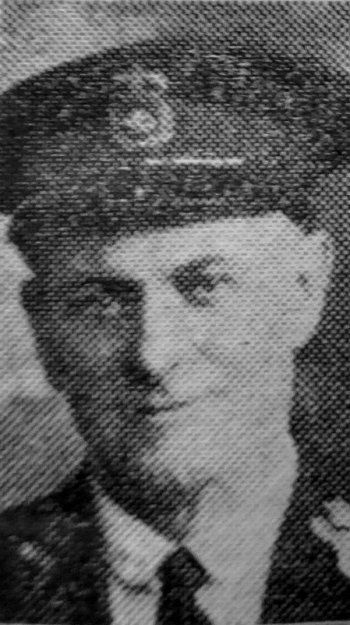South Yorkshire Times, October 17, 1942.
Wombwell’s Man Impression of Convoy Voyage

Chief engineer William Alfred Chilton (53), of 51, Station Road, Wombwell, is back in “port” again. He has been away from home eight months and has spent nearly the whole of that time at sea. He is enjoying 24 day special leave as a reward for arduous and heroic work into convoys to the North Russian port of Archangel. He has already been mentioned in dispatches by the Lord’s Commissioner of the Admiralty, whose who have communicated his majesties high appreciation, and once again he has distinguished himself in one of the most notable and daring episodes in the war at sea.
Chief engineer Chilton is a Hull man whose home was destroyed by enemy bombs causing the family to be evacuated to Wombwell. He has a wife, seven daughters and one son. The son William Alfred (24) is serving in a mine sweeper. There is another William Alfred aged four, making four generations in a direct line with that name, a fact which reveals the power of tradition in seafaring families.
Chief Engineer Chilton went to sea at the age of 16 and has never known any other way of getting a living. The story of the recent convoy to Russia is now well known, but Mr. Chilton fills in graphic details. He witnessed the full blast of the enemy’s vicious but unsuccessful attempt to stop these vital supplies from getting through.
A man of powerful frame, weather beaten complexion, dark curly hair and steel grey eyes, Mr. Chilton said. “We were lucky enough not to get a direct hit, but we had many near misses. When a lone reconnaissance plane began to circle round us just far enough away to be out of range of our guns we knew what was coming. It always happens like that. Two hours later they came at us with all they had got, torpedo bombers, dive bombers and submarines. The place seemed to be infested with them. This went on for five to six days and nights without a break. There was no such thing as sleep for the whole of that period.”
Mr. Chilton said he saw ships hit by torpedoes. One was in tow for three days before it went down, its back being broken by rough seas. In their ship they had survivors from ships which had gone down, some of the survivors suffered badly from frostbite.
Mr. Chilton said one of the most amazing exploits of the convoy voyage was accomplished by a Russian woman skipper of a Russian oil tanker. An aerial torpedo put a hole through the ship big enough to take a horse and cart but the woman skipper made port. Many of the crew of the tanker were women but not one member of the ship’s company was lost. Everybody had the greatest admiration for her “sea man ship. Mr. Chilton explained that a “near miss” can seriously disable a ship. He said that when some of the dive-bombers came at them they thought they were never going to get out.
Regarding the efforts of the Russian workers, Mr. Chilton said the people of this country ought to take their hats off to them. “They are in this war a hundred per cent.” he said. “They are suffer-great hardship but they never talk about the possibility of defeat. The Germans will never lick them. The Russians told them they did not want men, as they had plenty. What they wanted Britain and America to do was to get their stuff through. In the Russian ports there were no young people to be seen. Coal and timber were handled by old people and children. All the children of the young; parents who were serving were accommodated in creches where they were safe and could be fed and looked after. Schooling went on as usual, but the children worked after school hours.
He said it was very hard living for the Russians. At one port they ran short of food and were given two small cakes for two days. That would have been generous fare for the Russians. There was no such thing as butter on it. Still the Russians were very hospitable and would give them anything they could spare. Nothing was too good for the British. It was impossible in North Russia to get a drink of intoxicants. There was just a little vodka, but the Russian people told them frankly that was being kept back for their own men when they came home. The Russians had plenty of money but there was little they could buy with it. They would give the equivalent of £2 for a cake of chocolate. “In spite of all these hardships and trials,” said Mr. Chilton. “There is a fine spirit among them. They will never give in.”